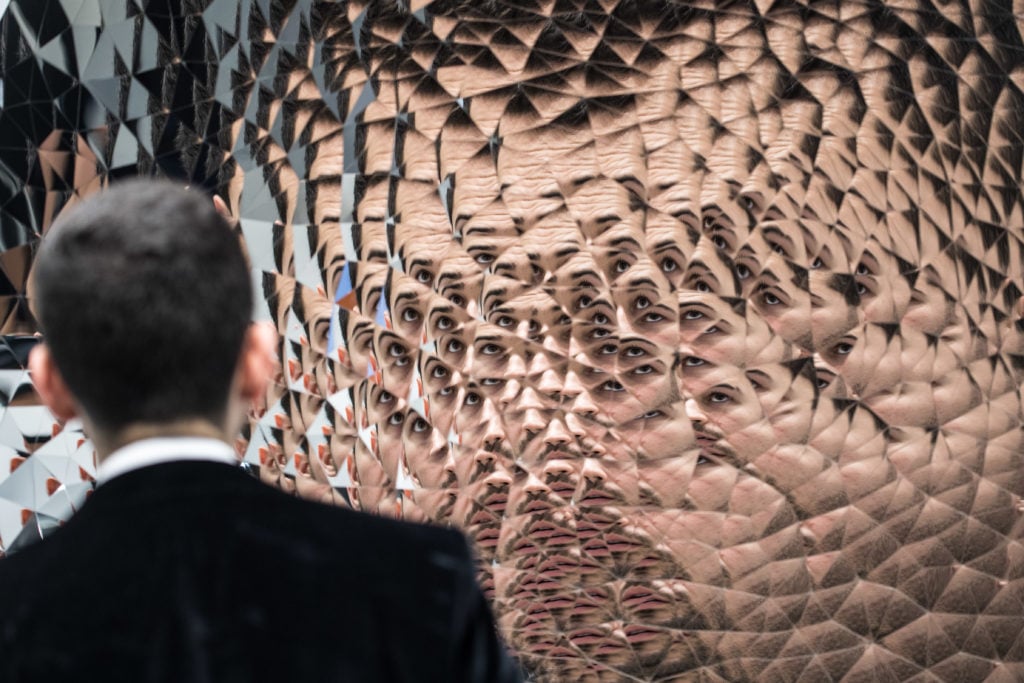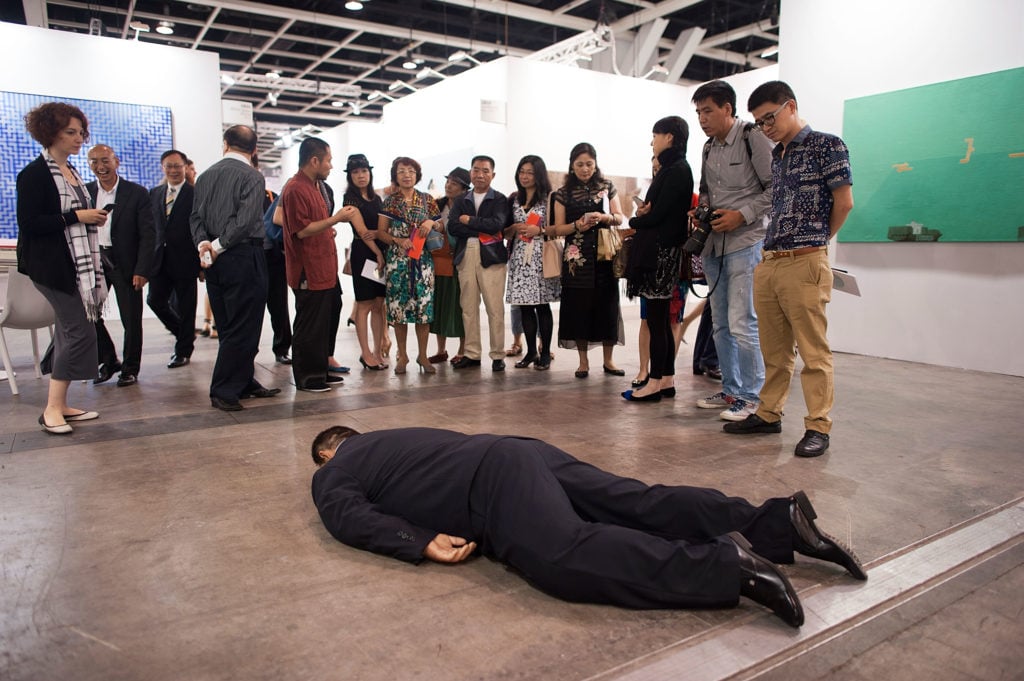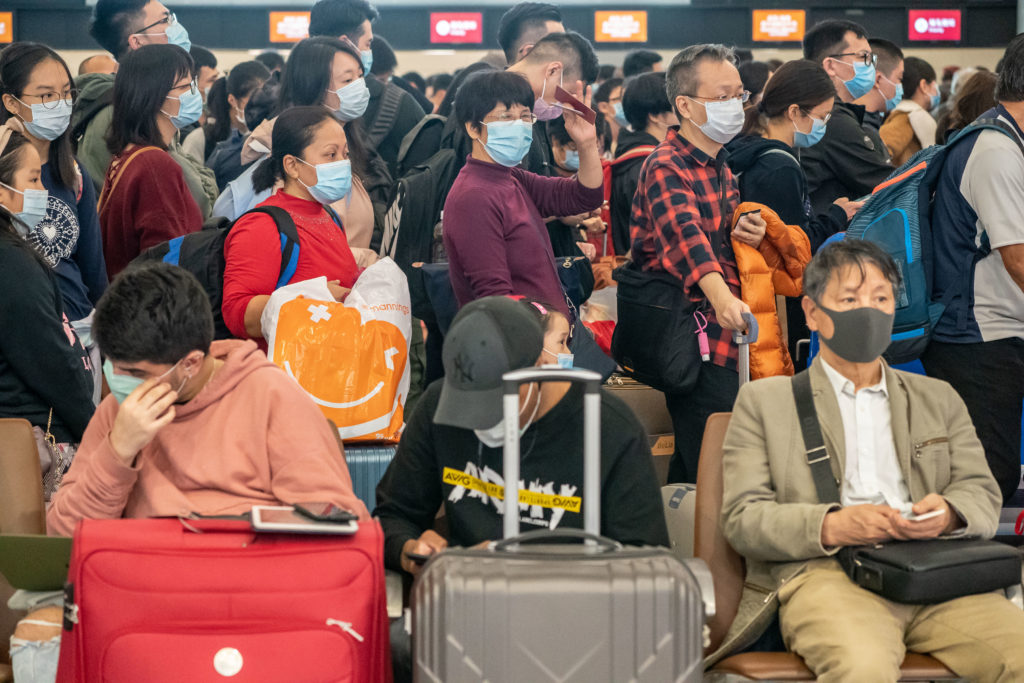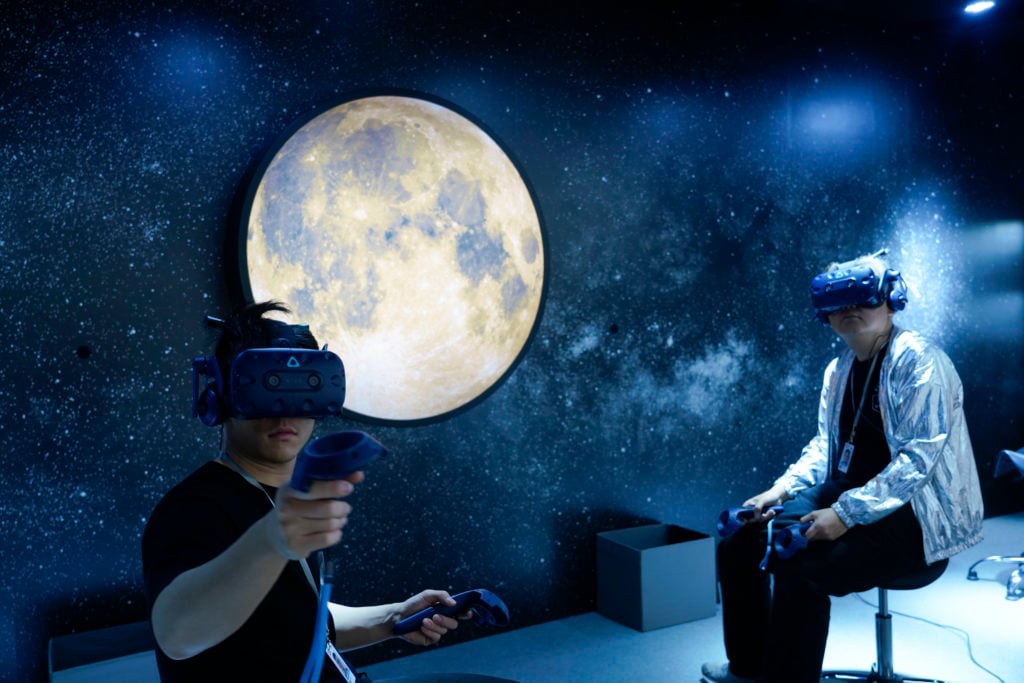Art Fairs
‘You Want to Pull Your Hair Out’: Artists and Gallerists Respond to the Long-Awaited Cancellation of Art Basel Hong Kong
The cancelation will have a big impact on dealers and artists—but most agree it was the only logical outcome.

The cancelation will have a big impact on dealers and artists—but most agree it was the only logical outcome.

Ysabelle Cheung

Art industry professionals in Hong Kong and abroad are simultaneously breathing a sigh of relief and anxiously calculating their losses after yesterday’s long-awaited announcement that Art Basel Hong Kong would cancel its 2020 edition due to the outbreak of a novel strain of coronavirus across Asia.
The decision by Art Basel’s parent company, MCH Group, had been anticipated for weeks—but the fair had to balance the growing pressure from exhibitors with the still-developing information around the health crisis, not to mention its own ongoing challenges with restructuring, financial strain, and shareholder objections. (A spokesperson for Art Basel confirmed the fair will be filing an insurance claim to seek reimbursement for its costs, but would not disclose further financial details.)
In an email sent to participating galleries yesterday, the fair’s leadership, Adeline Ooi, Marc Spiegler, and Noah Horowitz, said that after assessing all alternatives, including postponing the fair, they had “no option” but to cancel. “We express our deepest condolences to all those whose lives have been affected by the epidemic,” they concluded.
The fair’s organizers stated that they would reimburse 75 percent of the stand fee to all participating galleries, but will keep the remaining 25 percent, a loss that is already smarting for dealers who have also had to shell out money for production costs and dedicate extensive time to strategizing amid the uncertainty. “We were hoping for less,” one international gallerist, who asked to remain anonymous to protect their relationship with the fair, said of Art Basel’s cut. “Twenty-five percent is a lot.”

A view of Art Basel Hong Kong 2014. (Photo by Anthony Kwan/Getty Images)
But the losses are far greater than just monetary. Andrew Luk, a Hong Kong-based artist whose newly commissioned installation was due to be one of the 12 large-scale Encounters projects at the fair, said: “It’s the kind of unfortunate situation that makes you want to pull your hair out, not just personally regarding the opportunity to show at Encounters, but for the whole scene.”
Boris Vervoordt, director of first-time participant Axel Vervoordt Gallery—which has spaces in Hong Kong and Antwerp—also expressed regret. “We were so excited to participate for the first time and to present [work by] Kimsooja,” he said. The South Korean artist’s work “is all about participating in the now, non-actively, non-violently, so her message is incredibly important these days. However, safety of our friends, collaborators, locally and internationally, is of utmost importance.”
International dealers, some of whom had asked for partial refunds even before the outbreak of the virus, recently clashed with local participants over what Hong Kong dealers perceived as short-sightedness surrounding the political situation in Hong Kong.
“European and American galleries have been milking Asian collectors for years, and now they can’t wait to rub salt on the wound,” said Alan Lo, a Hong Kong-based collector who also serves on committees for Tate, SFMOMA and Serpentine Galleries. “Hong Kong is a long-term proposition. We are not just a fad. If some participants want to take short-term view and make a quick buck, I suggest they don’t come back.”

Travelers wearing face mask wait at the departure hall of West Kowloon Station on January 23, 2020 in Hong Kong. (Photo by Anthony Kwan/Getty Images)
London dealer Richard Nagy, who wrote a scathing letter to Art Basel Hong Kong organizers on January 30 demanding that the fair “be put out of its misery,” seems to have revised his tone now that the event will no longer go ahead. “I have been asked if I’m happy that Art Basel Hong Kong has been canceled. No one is happy about it,” he told Artnet News in an email. “There is no loss of prestige in having the guts to make a tough call and know when to regroup and make plans to come back stronger than before. It is courageous to cancel, but it was inevitable. I feel for all the people caught up in this epidemic, both in Hong Kong and further afield. It is a terrible thing. If it only impacts on our profit/loss ledger then we can be grateful. Some will not be so lucky.”
Dealers on the ground in Hong Kong are aware they have lost what is, for many, their most prominent showcase of the year. But they are banding together to continue showing art. Anthony Tao, the director of Gallery Exit, said he planned to forge ahead with a show of a new body of work by Chow Chun Fai in mid-March, which captures the artist’s reflections on recent civil unrest in Hong Kong. Lo, along with other collectors in the region, is brainstorming alternative ways to bolster the Asian art community. He urged others to “support the art ecosystem and buy primary [market] works. You can support the galleries, as well as the artists.”
Others are reminding international onlookers that while the fair draws global attention to the city every spring, the arts are a year-round presence in Hong Kong. “While the art world is excited for that one week, Hong Kong is also not dependent on Basel for the other 51 weeks of the year,” said Amanda Hon, managing director of Ben Brown Fine Arts. “We will continue, as we always have, to come together, as one, to support the local arts community.”

Visitors at Art Basel in Hong Kong are already familiar with VR and AR technologies. (Photo by Theodore Kaye/Getty Images)
Luk, the artist due to show a major installation at the fair, is taking the long view. “It’s not the end of the world,” he said. “I am confident art here will continue to thrive in the next few years regardless of this stingy but singular setback.”
The road to recovery might be longer than expected, however. As the death toll for the coronavirus climbs above 500, most institutions and spaces in mainland China and Hong Kong are shuttering temporarily in a bid to stymie the outbreak.
Other events planned in conjunction with Art Basel Hong Kong have either been canceled or postponed. Earlier this week, Gallery Weekend Beijing—a popular stop on the international circuit before the Hong Kong fair—announced it would either delay or call off its annual event, and would provide an additional update on March 15.
Meanwhile, Art Central, a fair that hosts more than 80 dealers in a tent in Hong Kong’s harbor, officially canceled its fair just hours after Art Basel Hong Kong’s announcement. And Guangdong Times Museum, which is just a bullet train ride away from Hong Kong, was due to open a major survey of works by Candice Lin on March 21, but the museum closed on January 23 and has not reopened due to health concerns.
Hong Kong’s economy, which had already entered a technical recession amid ongoing protests with two consecutive quarters of economic contraction, has also been hit hard. Some experts have predicted the city’s economy will shrink another 2.6 percent this year as a result of the outbreak and its ripple effects.
Additional reporting by Eileen Kinsella